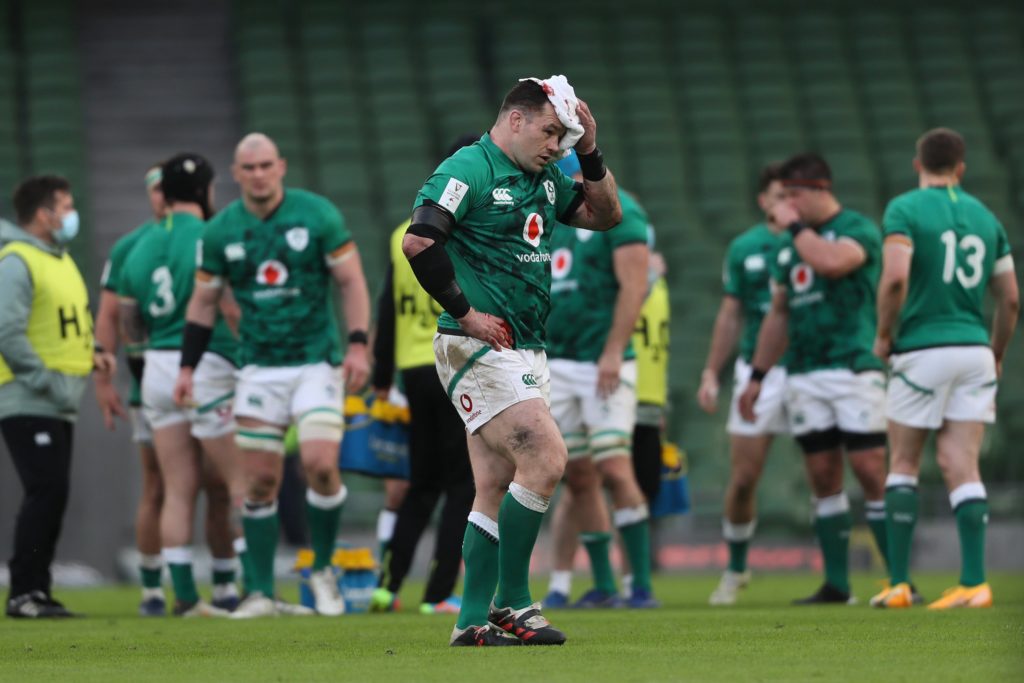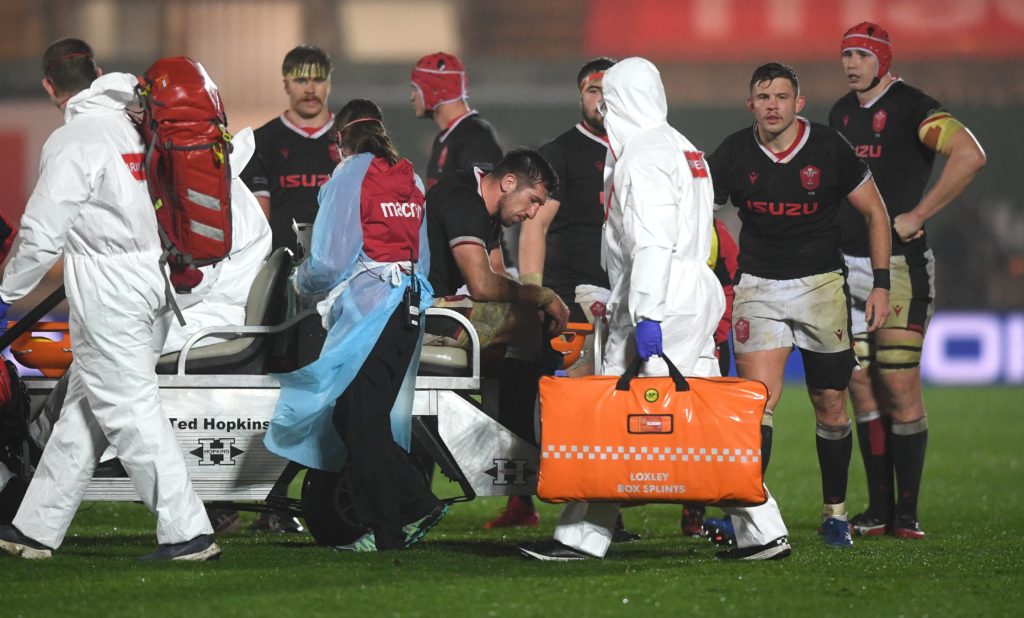An interesting addition to rugby’s increasingly urgent player-welfare conversation was announced this week in the form of a collective of current and former professional players, sports physicians, match officials and teachers. The group is called Progressive Rugby.
Born out of a now undeniable truth the sport has a concussion-related existential crisis on its hands, the group wants to work collaboratively with the game’s authorities to overhaul and improve their hopelessly inadequate player-welfare safeguards. A once pigeon-holed issue has been brought screaming into the mainstream by revelations several retired internationals are suffering early dementia in their mid-40s.
Among Progressive Rugby’s group are star names such as James Haskell and current Wales flanker Josh Navidi, while others, including Steve Thompson and Alix Popham, are involved in the ongoing legal case against World Rugby, the RFU and WRU, accusing them of not doing enough to protect them from concussions during their playing days.
The game’s authorities know they must now affect real and demonstrable change to the infrastructure of the professional game. If they don’t, a court of law awaits.
That case continues to divide the sport and will, no doubt, continue to do so until it is settled inside or outside of court, as happened in the NFL eight years ago, when America’s richest sport paid out $765million to former gridiron stars suffering early on-set dementia found to be related to concussion.

Whatever happens to rugby union, following the revelations of Thompson, Popham and their fellow litigants, the game’s authorities know they must now affect real and demonstrable change to the infrastructure of the professional game. If they don’t, a court of law awaits.
“Nothing focuses the mind like the prospect of being hanged,” Mark Twain once wrote.
For all those whose interests have been best served down the years by wilfully ignoring the brain injury crisis unfolding in plain sight, there is now enough tangible evidence backing up the scientific theory to convince most right-minded rugby people there is a problem.
Many, perhaps even the vast majority, are overwhelmingly sympathetic towards the afflicted players’ cause although a significant number, most with conflicted commercial interests, remain deeply hostile and sceptical of their motives. Few will say so publicly.
One individual closely associated with the ongoing legal case described to me this week how they had been called an “ambulance chasing c**t” by one player’s agent. Current and former players’ What’s App groups are also awash with derogatory remarks and crude jokes about the litigants.
Despite this, the dial has however unquestionably shifted significantly and irreversibly.
There is now at least the beginning of a route map to redemption, courtesy of the 20 safety proposals Progressive Rugby are calling for.
The legal risk is a now a clear and present threat to a sport that, despite spinning hard to the contrary, has not affected any actual law changes aimed at reducing concussions, notwithstanding significant advances in scientific understanding around head trauma and dementia in the 21st century.
For those who do not want rugby to be “extinct within a couple of generations” as Progressive Rugby reasonably argue it could be, there is now at least the beginning of a route map to redemption, courtesy of the 20 safety proposals they are calling for.

But, for now, World Rugby remains in denial. Player welfare continues to be their “No1 priority”. It’s a line trotted out by almost all rugby’s unions, associations and league organisers as if repeating it thousands of times somehow makes it true. Every single piece of meaningful action demonstrates it is not.
Money talks in professional sport and rugby is no different. Where there is a difference, to professional rugby’s great incovenience, is the frequency and severity of head trauma suffered by its players, compounded by the absurd and unsustainable amount of rugby they are contractually obliged to play.
Change has to happen. And it has to happen soon. There needs to be a third path here. None of us who care about the game and those who play it want it banned in schools or crippled by restrictive compensation payouts. Even worse, we don’t want to see a generation of former players in care homes or even dying before they reach 50.
“We’re just not seeing a cohort of former players suffering dementia,” one of rugby’s most senior medics told me when I first started reporting on concussion in 2013.
“Have you ever looked?” I replied.
Silence.
In truth, they chose not to look.
But brain injury can no longer be hidden away. Concussion is no longer rugby’s dirty secret. Concussion is rugby’s truth. Progressive Rugby, just maybe, could provide some of the answers needed to save it.
The question is; will rugby choose to listen?
More stories by Sam Peters
If you’ve enjoyed this article, please share it with friends or on social media. We rely solely on new subscribers to fund high-quality journalism and appreciate you sharing this so we can continue to grow, produce more quality content and support our writers.


Comments
Join free and tell us what you really think!
Sign up for free